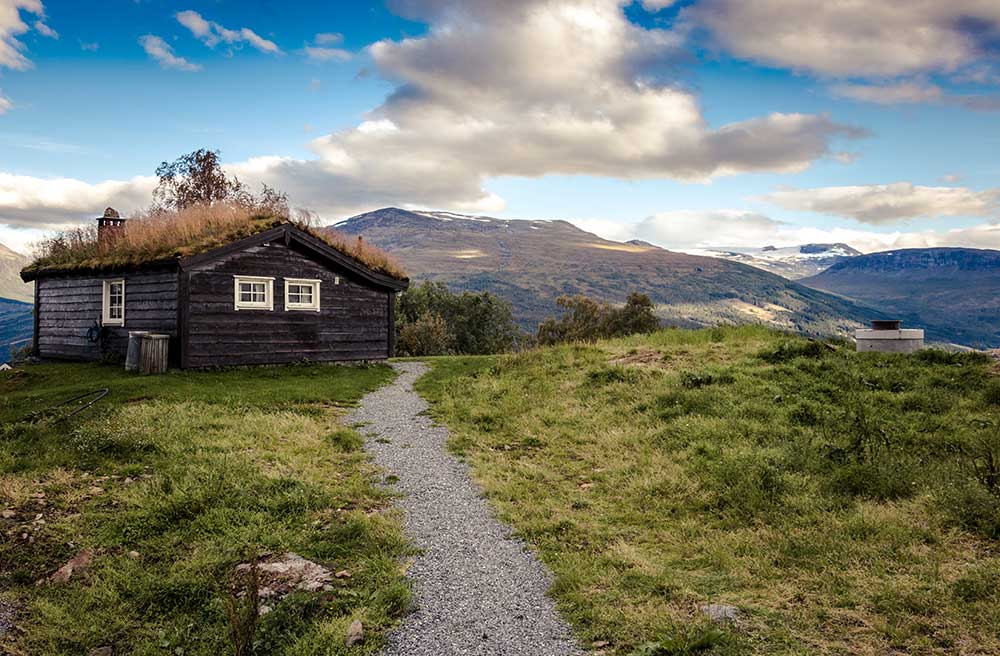If you're like me and have dreamt of trading city life for the serenity of beautiful mountains, you're in for quite an adventure. As you can imagine, transitioning to live off-grid is not simply a case of packing your bags and heading for the hills. There are some considerations that can make or break your experience.
In this post, I will share the ten key points you absolutely must do your research on before moving to the mountains. Once you've nailed these, you'll be ready to embrace that off-grid lifestyle you've been yearning for.
10 Important Considerations to Live Off-Grid
1. Choose the Right Location
Before uprooting anything, you'll need to research where you want to set up this new off-grid lifestyle. Every mountain region has its unique charm and challenges, so consider what kind of mountain terrain aligns with your idea of living off-grid.
One primary factor you’ll be contending with is the weather. Mountain weather is known for its unpredictability, so prepare yourself for a rollercoaster of temperatures.
Properly equipping yourself for every possible weather scenario is crucial to a comfortable off-grid experience. This includes having the right insulation in your home, outdoor clothing, and heating equipment.
If you're moving to a region of high elevation, remember that winter might not be the only season when it snows.
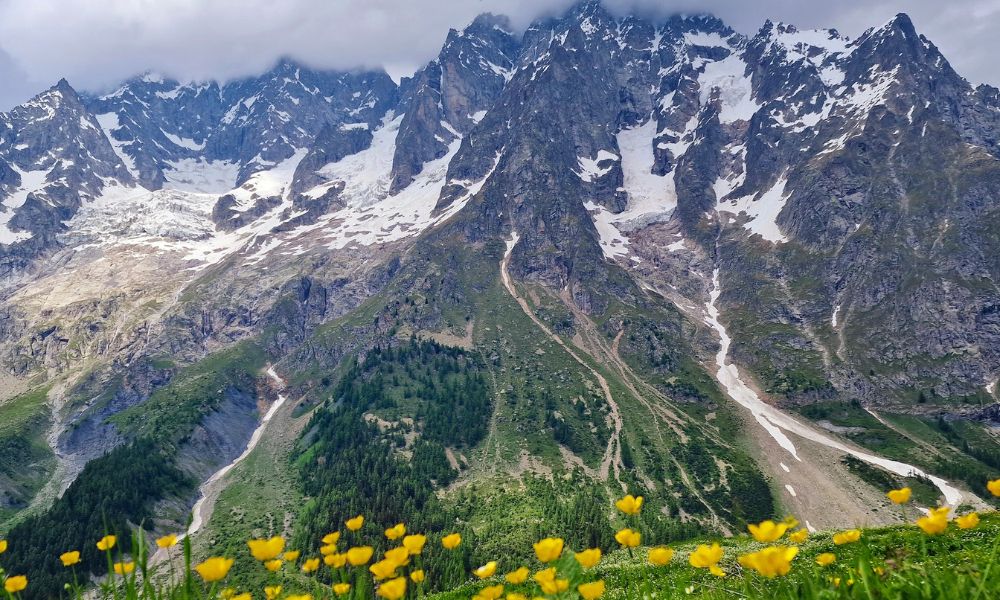
Another consideration for location is how close you want to be to civilization. Some off-gridders prefer solitude miles away from the nearest grocery store, while others prefer more convenience. Your choice of location will significantly impact your daily life, so think it through carefully.
Don’t forget the less thrilling but absolutely necessary side of things: legal and zoning regulations. These laws can vary significantly from one place to the next. Before you commit to an off-grid lifestyle, do your homework on local regulations.
This step will ensure a smoother transition into your new mountain home and help you avoid potential legal hiccups down the road.
2. Line Up Your Sustainable Energy Sources
Depending on your location and the surrounding conditions, you probably have a few options for sustainable energy sources.
To start with, embracing solar power is a must when you're off the grid. Invest in top-notch solar panels to generate your electricity. High-quality panels are the backbone of your energy system, so do your research and choose wisely.
A portable power station with a solar-chargeable battery is your next port of call. My personal choice is the Bluetti AC500, which packs a rated power of 5,000W and surge capacity of 10,000W.
Connect it to solar, and you can charge batteries to power your large and small appliances, TV, lights, and internet. All in, it’s enough to meet the needs of a small to medium-sized household.
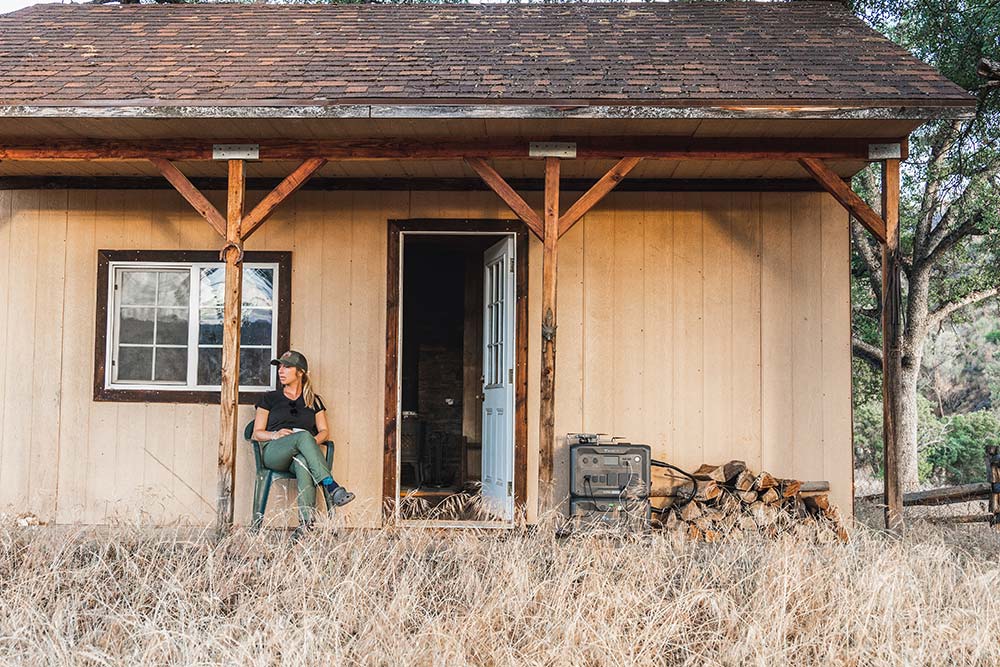
You can expand your system’s storage capacity from 3,072Wh (one LiFePO4 battery) up to 18,432Wh (six LiFePO4 batteries) – it just depends on your needs. Each battery will give you 3,500 full discharges before reaching 80% of its original capacity.
The Bluetti system is largely compatible with other brands’ solar panels, so you have flexibility in your technology.
I can also plug just about any device into it. There are 16 different outlets, including USB 5V, direct 12V outputs, wireless charging pad, and AC outputs for your country (240V or 120V).
For a small house, the AC300 with a rated power of 3,000W and 6,000W surge is likely sufficient. You can expand capacity with four B300 batteries to get 12,288Wh. It’s also 240V split-phase with seven ways of recharging, including solar.
To determine what size inverter and battery you need, best to check how much power you draw. A quick test with a power meter will tell you what each device draws.
The major advantage of these systems is they don't require a professional installation and are easy to set up yourself. They are also portable, so you can load them up to take them camping or use them in your RV.
Of course, solar is one of many options for energy. Another sustainable source is wind power. If you find yourself in a windier area, harness that energy with wind turbines and their compatible energy storage systems.
The same goes for if you have the luxury of a stream or river nearby. You could set up a small-scale hydroelectric system.
3. Plan Your Water Supply and Management
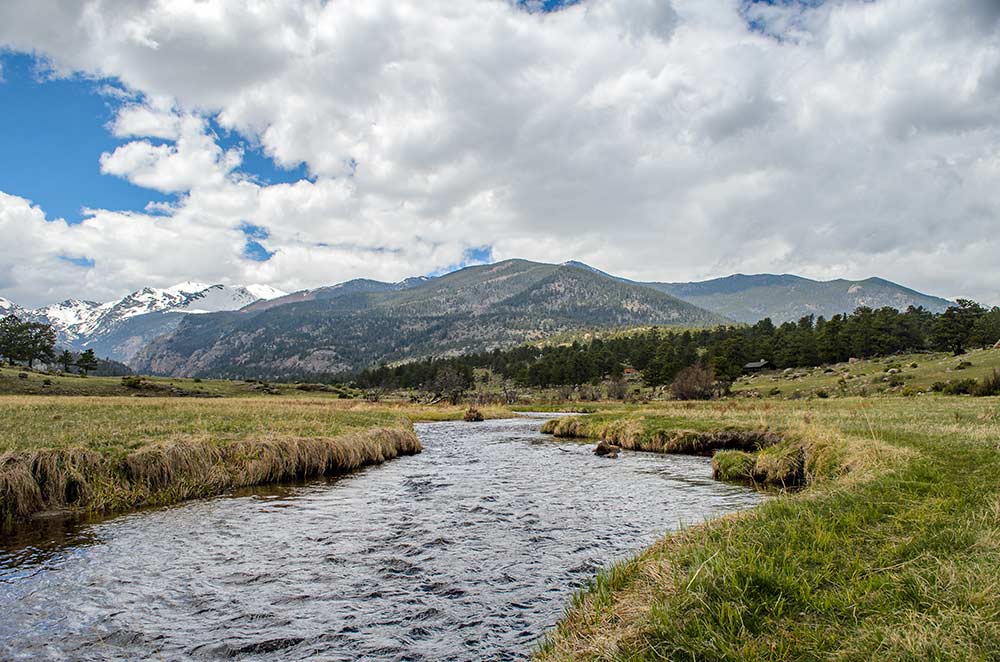
When it comes to water, you need to locate a reliable source and have a method of storing it. This ensures you have continuous access to this life-giving element.
Natural springs, wells, and rainwater are the most common water sources. Regardless of where your water is coming from, it must be clean and pure. Regularly test your water for quality to guarantee your family's health and safety.
Once you've secured a reliable water source, set up proper water storage tanks and purification systems. These ensure a consistent, clean water supply for drinking, cooking, and bathing. Safety and hygiene should never be compromised.
Water is a precious resource in the mountains, and responsible usage is crucial. Opt for low-flow fixtures, repair leaks immediately, and develop water-efficient habits to make your supply last longer.
4. Investigate Off-Grid Housing Options
If you're a DIY enthusiast and up for the challenge, one way to approach housing is to build your off-grid home from the ground up. It's a unique and rewarding experience, and you'll have a home tailored to your exact needs.
Naturally, this isn't a practical or realistic option for everyone. For a quicker transition to live off-grid, renovate an existing property to suit your needs. It's a bit like recycling but for houses.
During the renovation process, focus on making your new home more energy-efficient and eco-friendly while disconnecting from the national grid.
Another option around housing is to think outside the conventional housing box. Tiny homes, cabins, or yurts are eco-friendly, cost-effective, and potentially a perfect fit for your off-grid adventure. They're compact, cosy, and can be customized to meet your specific needs.
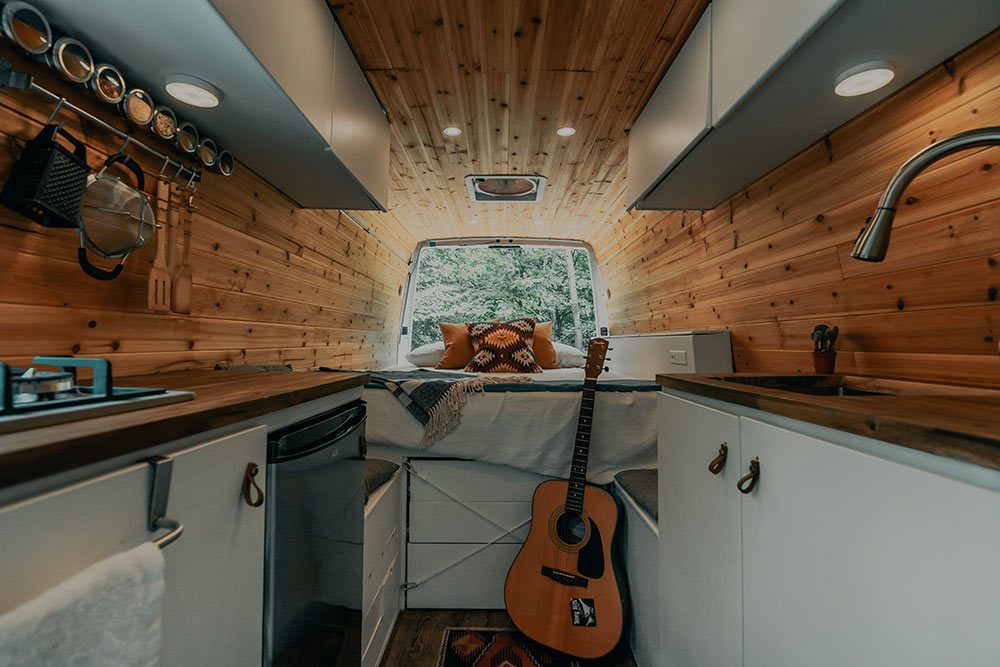
No doubt you’ve heard of Earthships as well. These innovative (and beautiful) structures are designed to be in harmony with the environment, using recycled materials and renewable energy sources. It's a unique way to build a home that aligns with your off-grid lifestyle.
Top tip: Try complement the natural surroundings of your off-grid home by connecting the indoors with the outdoors. One way to do this is utilising indoor planters. Choosing stunning and functional designs, such as those from H Potter, can accentuate your environment while maintaining simplicity.
5. Prepare a Waste Management System
Waste management is critical to get right in your off-grid home. The good news is it's relatively easy to set up.
Composting toilets are a great investment. They’re not just eco-friendly but also a smart choice for reducing water usage. The other obvious solution is to build a septic tank system.
For general household and kitchen waste, make recycling and repurposing a way of life. Embrace the "reduce, reuse, recycle" mantra. Get creative and find new uses for items before sending them to the landfill. It's a small effort that goes a long way.
When you have to take waste to the landfill, dispose of it responsibly. Take the time to learn about local recycling centres and waste disposal sites. Ensuring your rubbish ends up in the right place is essential for preserving the natural beauty of your mountain environment.
Greywater systems are your ticket to reusing wastewater from sinks, showers, and washing machines for irrigation. It's a sustainable way to use every drop wisely and reduce your water footprint.
6. Think About Food Production and Storage
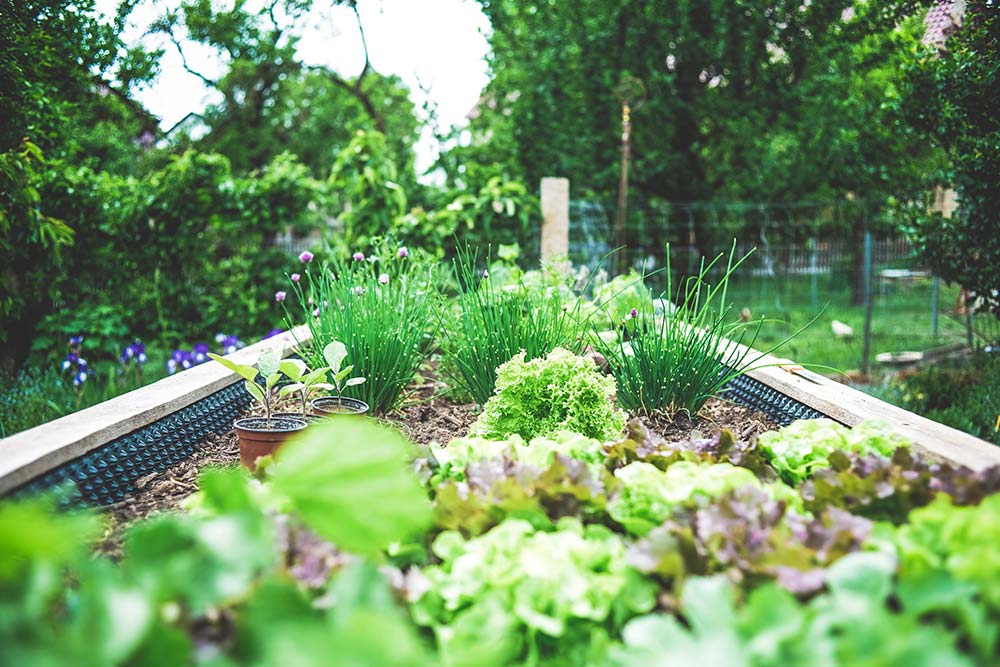
If your idea of living off-grid is building a homestead and not relying heavily on the local grocery store, you will have to put some thought into food production and storage.
Growing your fruit and vegetables is incredibly rewarding. Start a garden and explore permaculture principles to grow your food. It's not just about cultivating crops; it's about creating a harmonious ecosystem that provides for you year after year.
If you go this route, it's a good idea to get up to speed on the art of food preservation. Explore various methods like canning, pickling, smoking, and drying. These techniques extend the shelf life of your produce and allow you to savour the flavours of your mountain garden all year.
If you're up for it and have the space, consider raising livestock such as chickens or goats. They can provide you with a fresh supply of eggs, milk, and meat. However, this option comes with added responsibilities, so be prepared to invest time and effort into their care.
In some mountain regions, hunting and foraging can be viable options for sourcing food. It's a way to connect with the land and live off nature's bounty. Just make sure you follow local regulations and ethical hunting practices to preserve the ecosystem.
7. Set Up Your Connectivity and Communication Methods
Staying connected is crucial, even when you live off-grid in the remote mountains. Whether it's for emergencies or staying in touch with loved ones, reliable communication is essential for safety and peace of mind.

Start by checking for internet and mobile reception in your chosen location. It might surprise you. If reception is weak or non-existent, consider investing in signal boosters or satellite internet. These technologies can bridge the gap and connect you to the outside world.
For those off-grid moments or emergencies, consider having two-way radios and satellite phones on hand. They provide a direct line of communication when you're outside the reach of traditional networks. It's honestly a lifeline when you need it most.
Lastly, always have a well-thought-out emergency communication plan in place. Ensure everyone in your household knows the plan and how to use the communication tools at your disposal. Being prepared for unexpected situations is your best defence in the mountains.
8. Be Practical About Access to Healthcare and Emergency Services
When living in the mountains, it's essential to have reasonable access to healthcare facilities, especially in the case of emergencies. Nature can be unpredictable, and you never know when you might need medical attention.
Stocking up on first aid supplies is a wise move. Learn basic first aid skills to be self-sufficient in case of minor injuries. A well-equipped first aid kit can make a world of difference when help is not immediately available.
Other than that, create clear emergency response plans for various scenarios. These plans should cover everything from natural disasters to medical emergencies. Everyone in your household should know what to do and where to go should something happen.
Preparedness can save lives, so take it seriously.
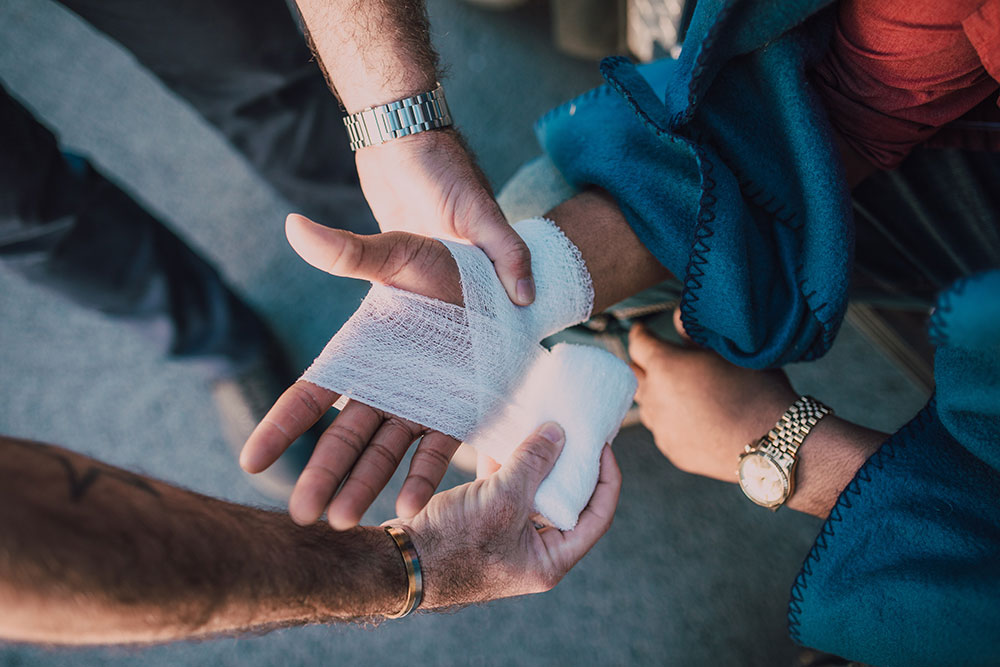
9. Community and Social Considerations
Just because you've chosen to live off-grid doesn't mean you must forego community. In the mountains, being part of a strong local community is not just about making friends; it's about survival and support.
If you're in a really remote area, loneliness and cabin fever can be an issue. Your neighbours can be your lifeline, offering help, knowledge, and companionship when you need it most. This can be especially useful as you get accustomed to a new way of living.
Get involved in local activities, events, and initiatives in your area. From hiking and camping to community events and cultural experiences, there will be plenty of opportunities to entertain you and your family.
One of your biggest concerts as a family will be educational opportunities for your children. Do your research to determine where the closest schools are or look into homeschooling.
10. Have a Financial Plan In Place
Going off-grid doesn't mean you won't have any living expenses. For example, while you may no longer have to pay for utilities, equipment maintenance will now be a financial consideration.
One of the biggest considerations for going off-grid is ensuring you have a financial plan that accommodates all potential living expenses, which could vary significantly from city life.
Evaluating how much wealth you would need to maintain your lifestyle solely through living off interest can be a viable approach for financial independence.
Having a clear financial strategy can help navigate costs like equipment maintenance or emergency funds.
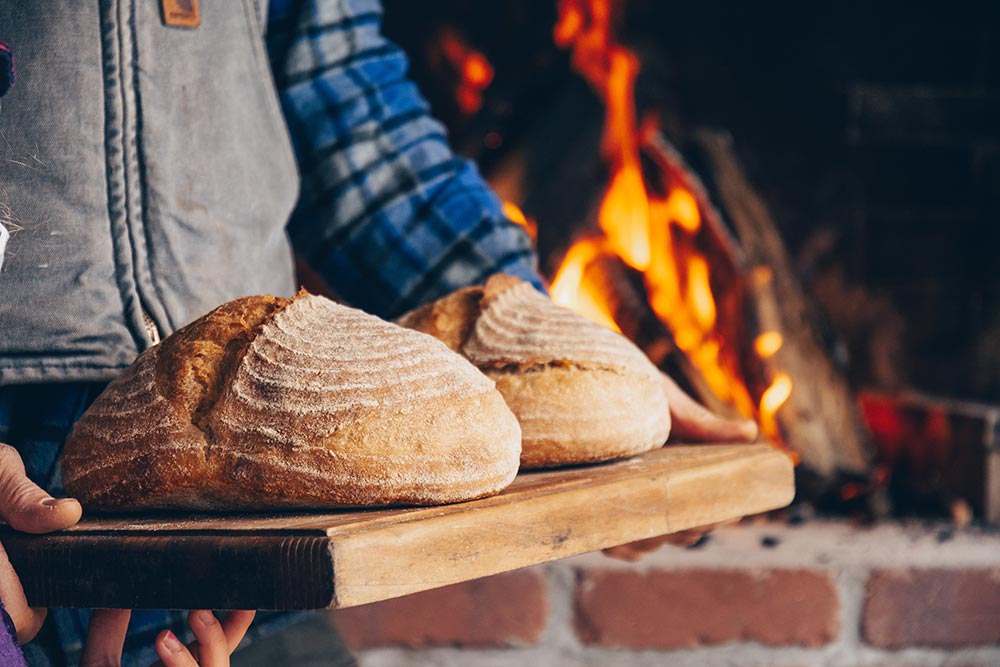
If you’re a remote worker accustomed to doing business from anywhere, generating an income while living off-grid might not be a huge concern.
However, if your current line of work doesn't allow that, you will need to explore other income-generating options that align with your skills and resources.
Final Thoughts
Living off-grid is an incredible journey filled with challenges and rewards. At Mountain IQ, we agree that the more prepared you are, the better your experience will be.
Remember, it's not just about surviving; it's about thriving in harmony with the mountains and nature.
Have off-grid living tips of your own to share? Comment in the section below - we’d love to hear from you.

